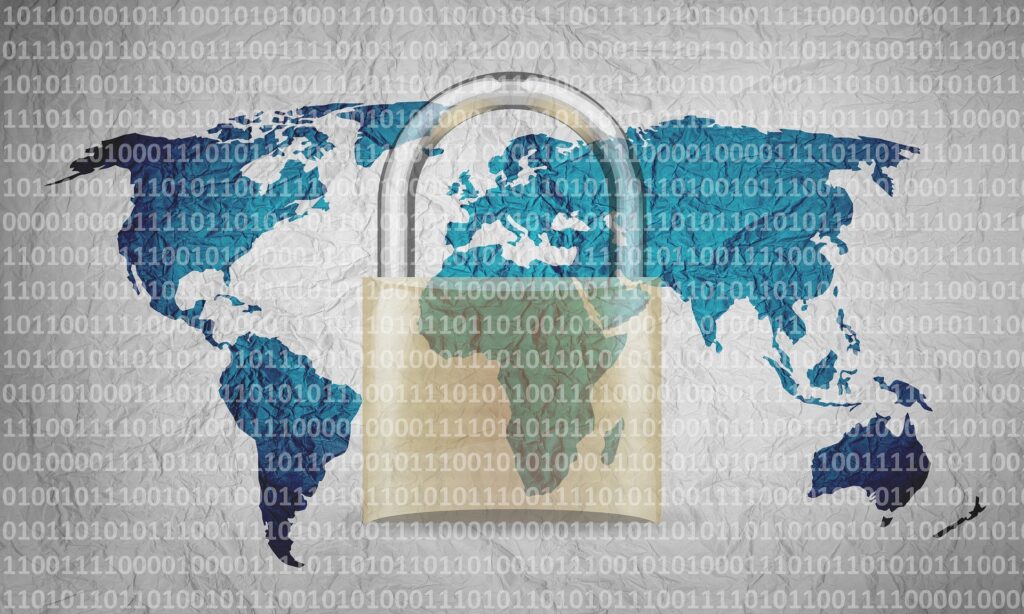
E-commerce has become the go-to for many businesses because it’s quick, efficient, and convenient for both the customer and the company. However, it’s important to remember that with convenience comes risk. Cybersecurity is an increasingly important aspect of e-commerce, and businesses need to understand the potential threats that come with running an e-commerce business.
It seems like we’re reading a new headline every day about a hacked website or leaked private data. You can be sure that your customers are paying attention, too. Cyberattacks are becoming more and more common, and businesses need to be prepared to protect themselves from potential threats.
And, just as importantly, your customers need to know that you’re watching out for their best interests and privacy by offering a secure e-commerce experience. Let’s take a look at what Qera Digital Marketing sees on the horizon for cybersecurity and what you need to know about cybersecurity, e-commerce, and how it affects your customers (and your bottom line.)
Types of Cyber Threats
Cyber threats come in many forms and can be challenging to detect. Phishing emails, malware, ransomware, and DDoS attacks are all potential threats that businesses need to be aware of.
- Phishing emails are designed to trick users into providing sensitive information, such as passwords, banking details, or credit card numbers.
- Malware is malicious software that can be used to steal data or damage a system.
- Ransomware is a type of malware that encrypts files and holds them hostage until a ransom is paid.
- DDoS attack is a type of attack that overloads a system with requests, rendering it unable to function.
Cybersecurity by the Numbers
Cyber-attacks can cause severe damage to a business, including data breaches, identity theft, and financial losses. Whether you’re the seller or buyer, you’ve likely engaged in e-commerce. In 2022 alone, 76% of internet users made internet purchases, and 64% of Americans had personal run-ins with cybersecurity issues:
- 41% with fraudulent credit card charges
- 35% with compromised personal information
- 16% with hacked email or social media accounts
- 15% with leaked Social Security numbers
- 14% with credit accounts opened in their name
- 6% with fraudulent tax returns filed in their name
Exploiting security vulnerabilities in e-commerce is a lucrative venture. Small businesses experienced 43% of data breaches in 2019, with $6.9 billion lost across the board in 2021.
As more and more businesses turn to the digital world, it’s expected to only get worse over the next 5 years to the tune of a 15% increase per year. This is where cybersecurity comes in, protecting your networks, programs, and data from unauthorized access and malicious attacks.
Businesses need to have cybersecurity measures in place to protect their customers and their own data. Without proper security measures, your business can be vulnerable to cyber-attacks, which can cause severe damage to your company and its reputation. Businesses that keep their cybersecurity tight look more trustworthy than those that appear to be playing fast and loose with customer data.
Just as there are foundational things you can always do to stay on top of e-commerce trends, you can take some tried-and-true measures to help keep your company’s website secure.
Preventative Measures to Protect Your E-commerce Business

There are several measures your business can take to protect itself from cyber threats. The first and most important is to require strong passwords for all your internal platforms.
Passwords should be complex and contain a combination of letters, numbers, and symbols. Passwords should also be changed regularly to ensure the security of your system. And, while it might be burdensome to expect customers to change their passwords periodically, it’s essential to require that they’re as complex and hard to guess as possible.
In addition, e-commerce businesses should ensure their systems are up to date with the latest security patches. This will help protect against potential vulnerabilities and keep the system secure. Companies should use two-factor authentication, requiring users to enter a second layer of authentication, such as a code sent via SMS or an authentication app, before accessing the system. It’s a minor inconvenience compared to the alternative!
Best Practices for E-commerce Cybersecurity
Implementing best practices should be a priority for your e-commerce website’s cybersecurity. Secure hosting services, backing up data regularly in case of a cyber-attack, and secure payment methods, such as SSL encryption, can all help to protect customer data.
Just as you need a website audit to ensure your online presence is as effective as possible, your company should also ensure its website is secure and updated with the latest security measures. This includes regularly scanning the website for potential vulnerabilities, such as outdated software, and fixing any issues that are found. You should also use a web application firewall (WAF) to protect your website from malicious traffic.
The Importance of Data Encryption
Data encryption is an essential element of e-commerce cybersecurity. Encryption transforms data into an unreadable format so it cannot be accessed without the correct key, making it indecipherable to hackers. Businesses should ensure that all customer data is encrypted and the encryption keys are securely stored.
Security Policies and Procedures
In addition to technical measures, businesses should also have security policies and procedures in place. These policies should outline the steps employees should take to protect customer data and the procedures they should follow in the event of a cyber-attack. Establishing clear policies and procedures will help ensure that all employees are aware of the security measures in place and that employees are following them.
The Importance of Employee Training
One of the most critical aspects of e-commerce cybersecurity is employee training. Employees should be trained on the importance of cybersecurity and the potential risks of not taking the necessary precautions. They should also be aware of the security policies and procedures in place and be familiar with the available tools and resources.
Cybersecurity Tools and Resources
Many tools and resources are available to businesses to help them protect against cyber threats. Firewalls, antivirus software, and malware detection tools can all help defend against potential threats. There are a number of online resources that can help businesses stay up to date with the latest security news and trends.
Securing Your Future
E-commerce cybersecurity is an increasingly important aspect of running a business. Cyber-attacks are becoming increasingly common, and companies must take the necessary precautions to protect themselves.
Having measures in place, such as strong passwords, encryption, and employee training, can help ensure customer data is safe and secure. Furthermore, businesses should be aware of the potential risks and be prepared to respond in the event of a cyber-attack.
Demonstrating that you take the integrity of your customer’s data seriously can be a potent way of setting yourself apart from your competitors and earning your customers’ trust.